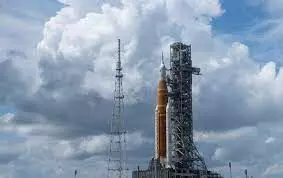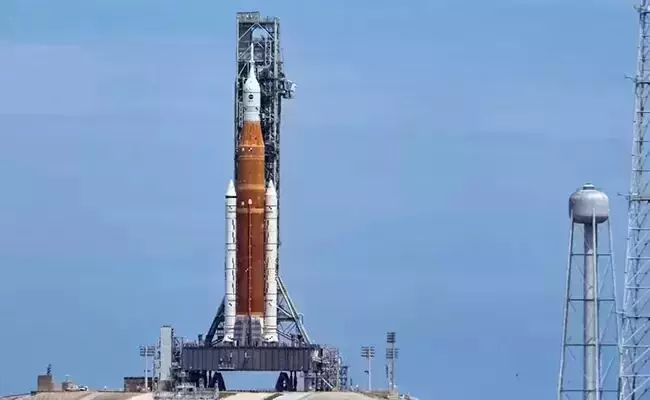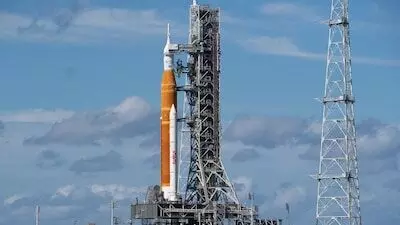
When another lunar mission is underway...
text_fields"We will return here again with hope and peace for mankind"— so said Eugene Cernan on returning to Earth after spending three days on the Lunar surface. Eugene Cernan and Harrison Schmitt were the last of NASA's astronauts to land on the moon. During their time on the moon, they travelled in a lunar rover collecting and bringing to Earth more than 100 kilos of rock and soil—there ended an era in space exploration.
Just days before the 50th anniversary of that historic event, the US space research agency has launched a new exploration program to bring humans back to the moon in a mission called " Artemis". Its first phase Artemis-1, progressing for more than five years with the collaboration of the European Space Agency, Japan Aerospace Agency and Canadian Space Agency, has been a success. The SLS rocket, launched on November 16 carrying the Orion spacecraft, has reached the orbit of the moon yesterday.
 Also Read:Third time's the charm: NASA launched Artemis 1 after several delays
Also Read:Third time's the charm: NASA launched Artemis 1 after several delays
NASA has released images taken from Orion as it is circling the moon about nine thousand kilometres above the lunar surface. Though coincidence, Orion's return to Earth will fall on December 11, the day Cernan and Harrison Schmidt returned from the Moon. There are many historical and political implications lurking in it all.NASA says that the Artemis-2 mission will become a reality within two years. And the Orion spacecraft will carry four passengers. However, they will not land on the moon. Orion (Artemis-3) passengers travelling the following year will be lucky enough to do so. Subsequently, Artemis-4 will carry the equipment to build a space observatory in lunar orbit. Artemis' mission aims at setting up an observatory for the first time in the non-terrestrial world. Howard Hu, the head of the US agency's Orion lunar spacecraft programme, said Nasa aims at establishing by 2030 a habitat for astronauts to live and work on the moon.
Just as Neil Armstrong, the first human to walk on the moon, said Artemis's mission will become a greater leap for mankind. Anyways, lunar travel is set to resume after the interval of fifty years. The first lunar mission emerged from the Cold War political background. Back then, alongside America's 'Apollo' mission, the Soviet Union's Soyuz and Luna also participated in the competition.
Their competitions were not limited to lunar travel either. It only meant that the war between the two superpowers on earth had taken to the skies. America and NASA won the 'space race', leading to man landing on the moon; robots and vehicles landing on Mars; Space stations were established outside the Earth, where researchers continued to travel. These quests and voyages gave humanity new knowledge about the universe. Tens of thousands of Earth-like planets have been discovered; these discoveries reinforced the suspicion that humans are not alone in the universe. These extraterrestrial journeys opened infinite source of knowledge for humanity. Researchers have resumed the lunar exploration that popularized those journeys.This new journey has another political background. These trips are also a new test of strength between superpowers. It is hardly possible for the US to go ahead unilaterally in the new ' space race'. The big missions like the new lunar mission come with the help of many countries. China, on the other hand, is trying to build its empire in space. In June last year, China successfully delivered three passengers in its space station named Tiangong and after days of experiment they returned to Earth. China is on a winning streak in many other missions as well. In 2021, their Mars rover, Tianwen landed a robotic vehicle on the red planet. In December 2020, China's probe called Chang'e 5 -5 brought rocks and soil from the moon to Earth. It is the first time since Cernan and Harrison Schmidt that lunar objects have been brought to Earth. To sum up, Artemis is not only leaping into new knowledge, but to an unpredictable 'war'. This competition will undoubtedly give mankind new knowledge about the universe. The only question is how humans are going to use the knowledge that science and technology give us.
























